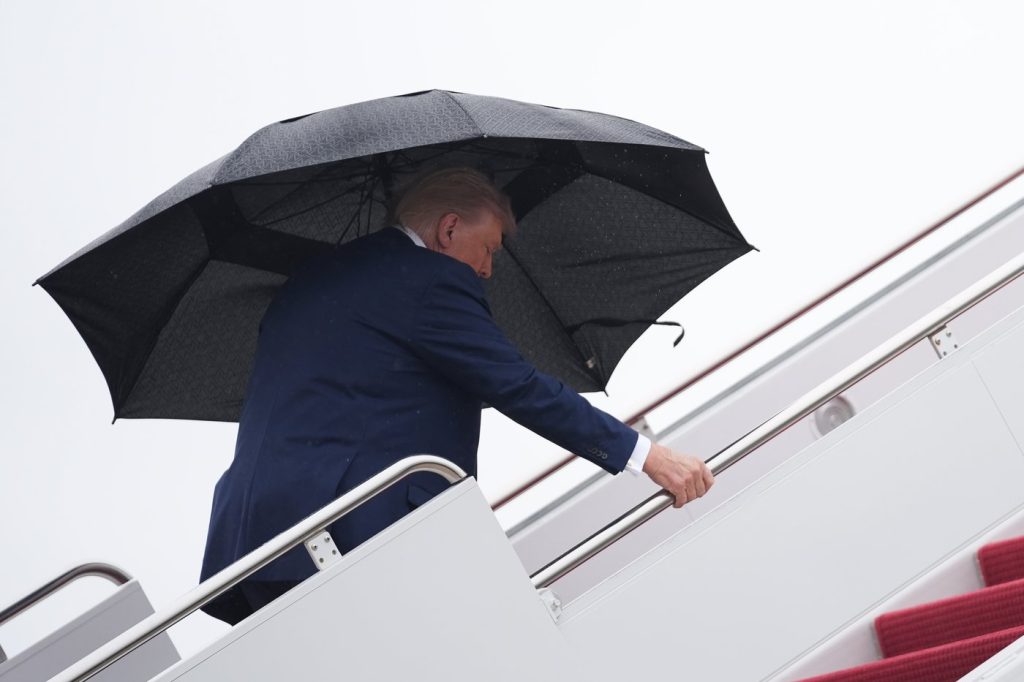On Monday, a significant event dubbed the "Summit for Peace" is taking place in Sharm el-Sheikh, Egypt, co-chaired by U.S. President Donald Trump and Egyptian President Abdel Fattah el-Sissi. This summit aims to support the cessation of a two-year war in Gaza, which has been marked by a recent breakthrough ceasefire deal. Neither Israel nor Hamas is expected to attend the summit, as both have no direct communication with each other. Israel has explicitly rejected any role for the internationally backed Palestinian Authority, although its leader is attending.
World leaders from various nations, including Turkey, Jordan, Britain, Germany, France, Italy, alongside representatives from the United Nations and the European Union, are confirmed participants. This gathering coincides with a pivotal moment as Hamas is set to release its remaining 20 Israeli hostages, and Israel is poised to free hundreds of Palestinian prisoners. These exchanges are considered crucial steps following the commencement of a ceasefire last Friday.
Despite the ceasefire's initiation, substantial uncertainties loom over the future trajectory of the peace process, raising fears of a potential re-escalation of hostilities. The global leaders are convening in response to significant pressure exerted by the United States, Arab nations, and Turkey, seeking to build on the agreement of the ceasefire's first phase. Both Israel and Hamas require international and regional support to navigate various complex post-war challenges.
President el-Sissi's office indicated that the summit seeks to "end the war" in Gaza and to "usher in a new page of peace and regional stability," aligning with President Trump's vision. Notably, Egypt had proposed a postwar plan in March aimed at ensuring the survival of Gaza's population, countering a Trump-administrated plan that suggested depopulating the territory. The co-chairing of this summit by both leaders reflects collaborative efforts to foster a constructive path forward; however, the in-depth discussions on remaining vital issues are not anticipated during this approximately two-hour gathering.
Under the earlier ceasefire agreement, Israeli troops have begun to withdraw from certain areas of Gaza, facilitating the return of hundreds of thousands of Palestinians who had been evacuated. Concurrently, humanitarian organizations are strategizing to deliver substantial aid that has been withheld from the region for several months.
Critical topics for negotiation include the disarmament of Hamas, the formation of a post-war governance structure for Gaza, and the extent of Israel's military withdrawal from the area. Trump's outlined plan also calls for the establishment of a new Palestinian security force with support from regional and international partners. Another pressing concern is securing the financial resources necessary for the reconstruction of Gaza, with estimates from the World Bank and Egypt’s post-war plan indicating that $53 billion will be required. Future reconstruction conferences hosted by Egypt are anticipated to address these funding issues.
Absent from the summit are the two principal actors in the conflict—Israel and Hamas. The longstanding animosity and lack of trust between them, coupled with a series of unsuccessful negotiations, has resulted in their non-participation. Previous talks, both in Doha and elsewhere, have involved indirect negotiations facilitated by Egypt and Qatar. Furthermore, Iran, a prominent supporter of Hamas, is also not participating in the summit, signifying a possible decline in its influence and raising concerns regarding the potential for renewed conflict with Israel.
During the conference, it is expected that global leaders will recognize and praise the diplomatic efforts of President Trump that led to the ceasefire agreement. President el-Sissi may feel a sense of relief that Egypt managed to prevent the implementation of a depopulation strategy for Gaza. Turkish President Recep Tayyip Erdogan, who has historically hosted Hamas leaders, is also set to attend, emphasizing Turkey's role in negotiating the ceasefire.
Other notable attendees include Germany's Chancellor Friedrich Merz, who plans to express concerns regarding Israel's actions during the conflict and co-host the reconstruction conference with Egypt. Furthermore, UK Prime Minister Keir Starmer is expected to pledge financial assistance towards humanitarian relief in Gaza while organizing a follow-up conference to coordinate recovery plans.
Sharm el-Sheikh, known for its luxury resorts and historical significance in peace negotiations, serves as the backdrop for this critical summit. The site has a long-standing association with various diplomatic efforts in the region, marking its importance in ongoing attempts to resolve longstanding conflicts between Israel and the Palestinians.











